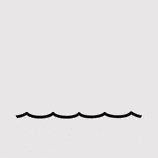As surfers, we all have one thing in common: we love the water. Everything feels better when we are in it and after we come out of it. Problems don’t look that big anymore, you feel more peaceful and your self-esteem is higher. It’s like a reset button; that feeling isn’t just in your head. There is a reason why we feel drawn toward the water when we feel overwhelmed, overstimulated, or anxious. We already know that the colour blue, sound, and rhythm of the ocean can do wonders to create a relaxed state of mind. Whether you are catching waves or sitting near the beach, water can provide immense natural stress relief and boost your happiness. So, what is the Blue Mind Theory?
What is Blue Mind Theory and its Origin?
Blue Mind Theory shows how people can use water to improve their well-being. It’s the idea that being in or close to water has a significant positive impact on our well-being, happiness, and creativity.
The theory became popular after the marine biologist Dr. Wallace J. Nichols published his book ‘Blue Mind’ in 2014. Nichols suggests that being in or around water triggers a positive reaction in our brains. According to Blue Mind science, we as humans are automatically drawn towards water since we are mostly made of water. When we are near, in, under, or on water, our brains recognize it and think, “This feels right, I’m in the right place”. This phenomenon can be described as the natural calming effect of water on our minds. If you’ve ever felt calmer, and more peaceful around water, you’ve experienced Blue Mind.
Science Behind Blue Mind Theory

The research of the blue mind theory looks into how water influences different aspects of brain function and psychological, and emotional effects. Neurologists and psychologists are finding proof that being near water affects the brain in positive ways, confirming how we naturally feel by water and Nichols’ Blue Mind theory.
Being close to water increases “feel-good” hormones such as dopamine and oxytocin. At the same time, it lowers the stress hormone cortisol, leading to relaxation. Scientists have known for years that being at the beach, on the ocean, or near moving water has higher levels of negatively charged ions. These ions in the air help the brain release serotonin which improves mood and reduces blood lactate, lowering stress.
Living in a constant state of stress, anxiety, and overstimulation, which Nichols calls the ‘red state of mind,’ kills neurons and prevents us from doing the things we really want to do, disconnecting us from ourselves. It’s a normalized part of society that is hard to escape from.
(We’re naturally programmed to stay alert for survival, which is why it can be hard for some of us to relax in the same environment. But water, which can be both steady and moving at the same time, tells our brains that it’s safe and okay to relax.)
Benefits of Blue Mind Theory and its Advantage
There are numerous cognitive and emotional benefits that we experience every time we spend time by the water. Whether you choose to dive into the waves or simply watch them from the shore, you’ll likely experience one or more of the up following benefits.
Related read: Surfing and Emotions
Cognitive Benefits
It improves your creativity and problem-solving skills. Being in a place that is both steady and changing, like near water, can make your brain focus without trying. This is called involuntary attention. This natural focus can help you feel refreshed and improve your problem-solving skills and creativity. Also, we have more focus and clarity as our brain is relaxed, allowing more space for concentration, and we see things more clearly.
Emotional benefits
As we already mentioned before: Water helps boost your brain’s feel-good chemicals like dopamine, serotonin, and oxytocin, which make you happy and relaxed. At the same time, it calms your nervous system; and lowers cortisol, the hormone that causes stress. The blue mind theory can even be used to manage people with PTSD.
Physical benefits
When we feel better in our minds, we feel better in our bodies, and vice versa. Creating this relaxed state of mind can help us resolve physical damage caused by stress and improve our sleep, resulting in better recovery and more energy that we will feel throughout our bodies, from head to toe.
Can Blue Mind make you a better surfer?
While Blue Mind theory may not directly improve your technical surfing skills like paddling or maneuvering, it helps us relax and reduces our anxiety. Once we are relaxed, the brain can focus better, allowing us to connect more deeply with ourselves, others, and nature. As surfers, connecting with nature enhances our understanding of the ocean, thereby improving
our surfing abilities. One of the most important surfing principles is to relax, breathe, and harmonize with the wave and your board. The meditative state of mind promoted by the Blue Mind theory can help achieve this. Be open to it, allow it, replace the red filter with the blue filter, and feel the difference. Being calm and focused can help you stay alert and present while surfing, improving your surf skills and enjoyment.
Related read: Surf exercises that will improve paddling and posture
Conclusion:

As surfers, we might already have an idea of what the Blue Mind theory was based on our experience. So, whether you go out for surfing, take a relaxing bath, visit waterfalls, or watch fish in an aquarium, water can provide immense natural stress relief and boost your happy feelings. Don’t forget to embrace this natural therapy next time you’re near or in the waters!
Experience the peaceful waves and exciting surf at Hollow Tree’s Resort. Feel refreshed and inspired by nature at the Mentawai Sea.
Related read:




